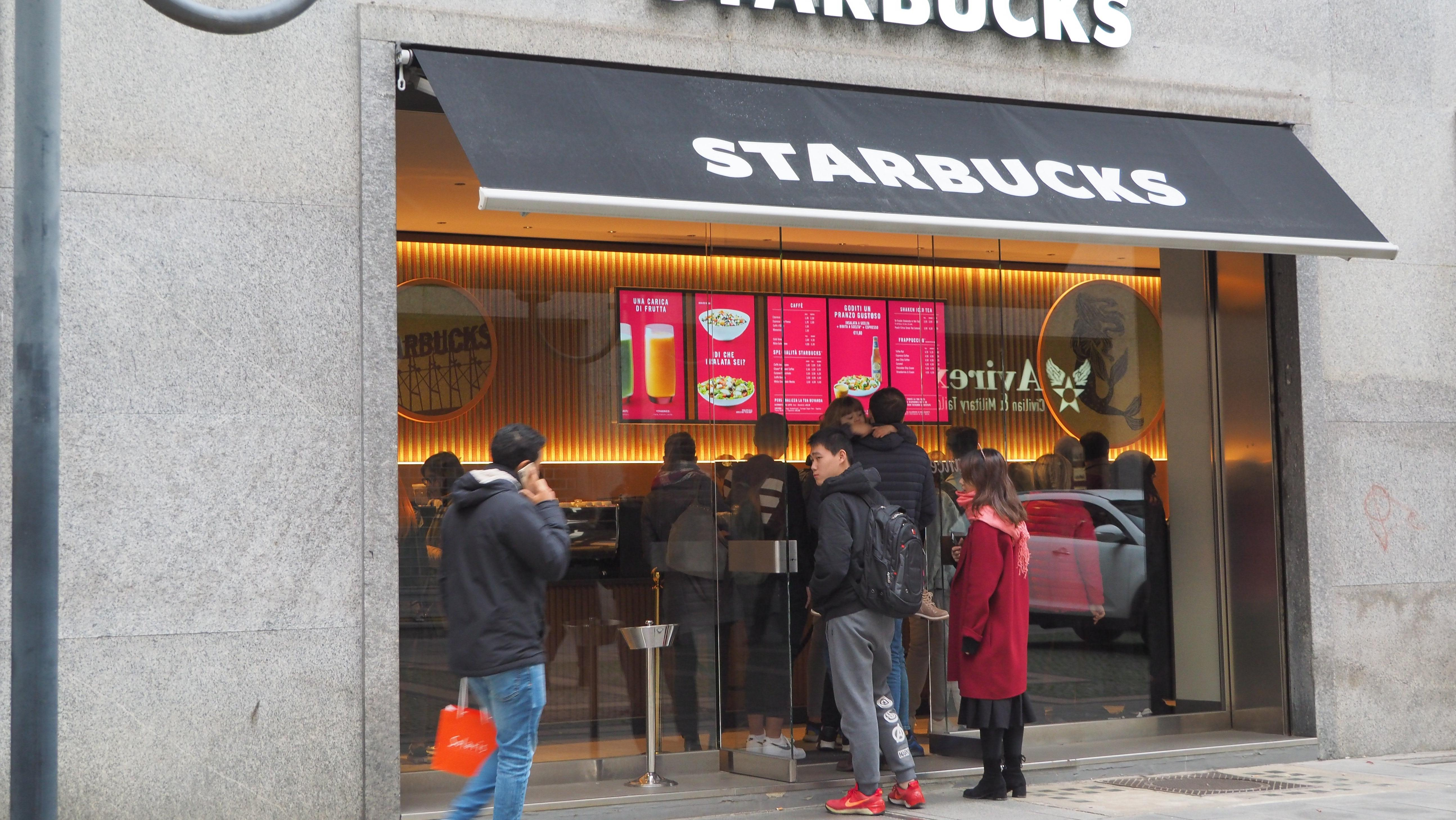Starbucks Succeeds Where Domino's Failed
Starbucks is planning an unlikely expansion in Italy, and other chains should take note.
As improbable as it might seem, Starbucks—a quintessentially American coffee chain—has established itself as part of Italian coffee culture, reports CNBC. At first, Starbucks' plan to expand its presence in Italy, the home of espresso, sounded like a recipe for failure. However, Starbucks has managed to succeed within the country in a way other American brands could not. The secret to that success lies in a surprisingly straightforward business strategy.
American companies that have failed abroad
The thing about American cuisine is that it's often composed of Americanized versions of global cuisine—so when US companies head to those countries of origin peddling "bastardized" versions of their dishes, the locals might not be so welcoming. Still, that hasn't stopped many brands from trying.
Domino's, for example, tried to bring its version of pizza to Italy, the land of pizza, back in 2015 after finding success in a few other European countries. After seven years of attempting to grow there, the chain finally closed the last of its Italian locations in 2022.
Domino's came into the Italian market on the premise that it would entice customers by using locally sourced ingredients and offering delivery, a service that wasn't as common in the country at the time. Despite these incentives, it just didn't catch on, and Italians were neither surprised nor disappointed by Domino's departure, reported Food & Wine, with some online commenters comparing the endeavor to "bringing sand to the beach."
One reason Domino's couldn't gain an edge in the Italian market is that, starting in 2020, the pandemic forced local independent pizza shops to adapt, many of them tacking delivery onto their offerings. This shift in the market erased the one differentiator Domino's had, and with little else to distinguish its pizzas, it was all downhill from there.
Taco Bell is another fast food chain that failed spectacularly in trying to serve its Tex Mex food in the land that originated it. In fact, Taco Bell was so dead set on gaining a foothold in Mexico that it tried to enter the Mexican market not once, but twice. Multiple factors hobbled these attempts, but one commonality above all seems to be that Mexican consumers simply did not want Taco Bell's particular spin on their food. They're happy with the tacos they already have.
What Starbucks is doing right in Italy
Similar to the reception Domino's received, when Starbucks first opened locations in Italy in 2018, people were not pleased, reported CNBC. The initial reception was so frosty that some protestors set fire to the trees planted outside Starbucks' first location in Milan.
However, unlike Domino's, Starbucks has actually expanded in the country and is reportedly performing well in the Italian market in 2022. Why? Because the chain didn't try to impose "American" flavors on a product important to Italian history and culture.
As with pizza, coffee is something that Italians hold sacred and approach with local customs and rituals. In order to respect those traditions and truly immerse the brand in Italian culture, Starbucks worked with an Italian brand manager and partnered with local businesses.
Starbucks first touched down in Milan with a massive 25,000-square-foot Roastery location (which is also present in Chicago and a few other select cities globally), but what stands out about the Roastery is not just the size. It was designed to feel less like an American Starbucks and more like an Italian coffee shop, using local materials and craftsmen. The food is also supplied by local producers so that the fare blends in with similar offerings throughout the city. And because Starbucks' menu was always meant to be an homage to Italian coffee culture, the product aims for as much verisimilitude as possible. It must have won over enough people, because as CNBC notes, there are now 20 locations throughout Italy and counting.
"I immensely enjoyed the coffee I had there... it tasted precisely like an Italian coffee should, and I would say a good Italian coffee," Eva Del Soldato, Associate Professor of Italian Studies at the University of Pennsylvania, told CNBC.
Starbucks is not the only brand to recognize this strategy of respecting another country's culture and adapting to local tastes. In a way, McDonald's does it all over the world by offering vastly different menu items in each country it serves. However, if they're looking to expand without embarrassment, brands that specialize in a food representative of a specific region or culture should take note of how Starbucks has had its success in Italy. Delivery alone won't cut it.
